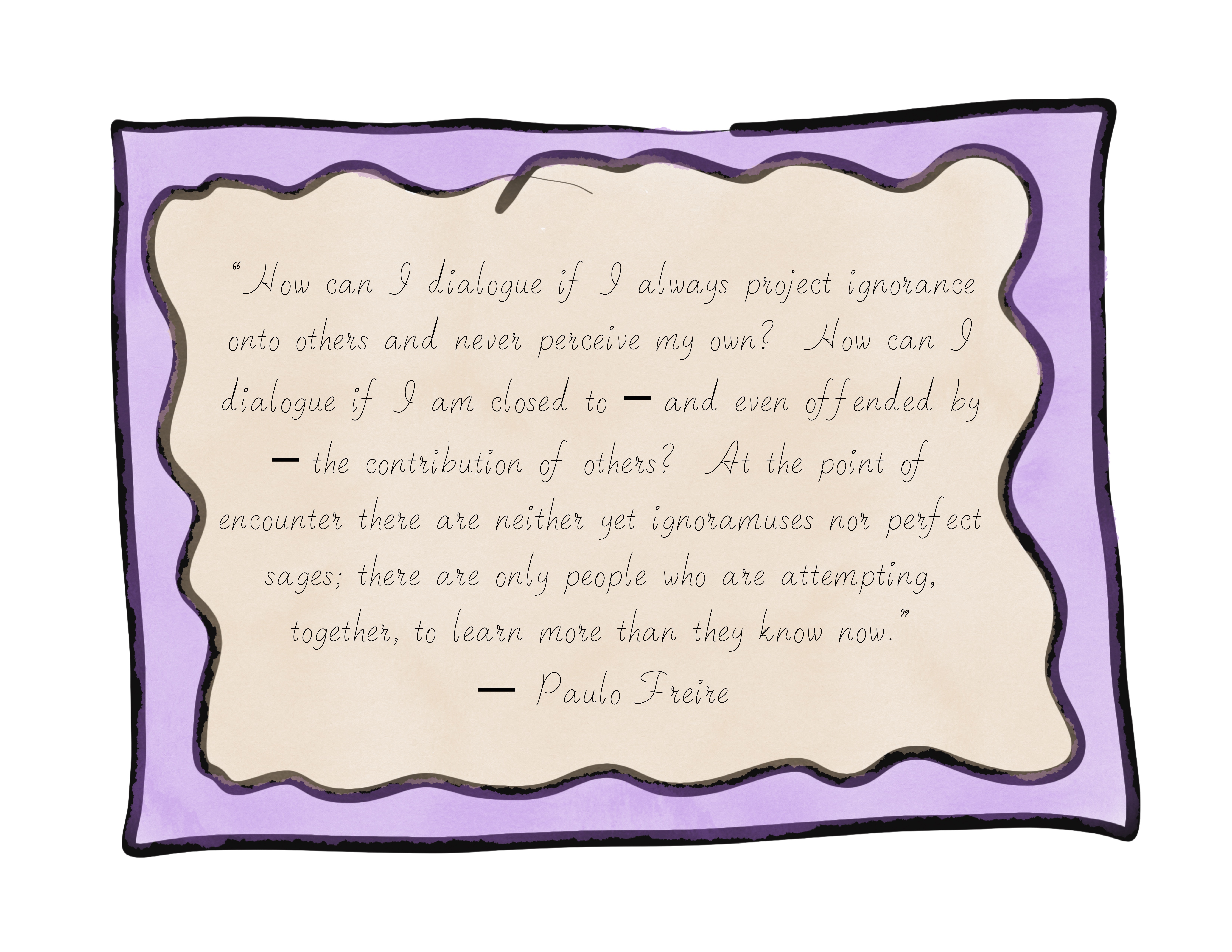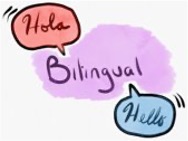About the Journal

Mission Statement
In Dialogue/En Diálogo is a peer-reviewed, open-access journal that puts key stakeholders in dialogue with each other about educational issues critical to the surrounding communities of the California State University Colleges of Education. Drawing on Freirean principles, In Dialogue/En Diálogo integrates theory and practice through the multi-voiced discourse of PreK-20 researchers, teachers, administrators, students, staff, and community members to capture evolution of thought and practice. The journal aims to embrace the messiness of efforts for justice within and through education while centering voices of those who have traditionally been marginalized from academic conversations. Each volume presents a (sometimes multilingual) snapshot of contemporary, research-informed conversations and practices and captures pivotal moments that strengthen collective critical consciousness.
Focus and Scope
Each issue will feature a critical conversation on a current topic in education and equity. Creating a textual concentric circle, we highlight the voices of all concerned with the topic, including PreK-20 pre-service and in-service teachers and administrators, school counselors, researchers, faculty, staff, and community members. Single and multi-authored pieces are welcome. Each perspective will be featured in equilibrium with others. An invited representative from the field will facilitate each issue’s dialogue by writing a piece that connects and analyzes the issue’s contents. It is our goal that by being In Dialogue/ En Diálogo with each other in this fashion, we can enhance our collective critical consciousness and inspire change in praxis, causing a ripple effect of transformation in our education systems.
Detailing of Partnerships
We intentionally partner with local educational agencies and organizations to learn about relative topics, to invite works for publication, and to disseminate issues of the journal. We invite our local partners to guide our dialogue by suggesting current topics that are integral to advancing critical and justice-oriented approaches to education. Please contact the editors if interested in arranging a special issue.
These types of submissions are welcome: empirical research articles (privileging critical methodologies), essays, theoretical thought and opinion pieces, reflections on pivotal moments of transformation, how-to pieces, curriculum analysis, personal narratives, book reviews, and creative contributions. The ideal manuscript length is between 1, 500 and 3,000 words, including references, abstract, tables/figures, and appendixes. However, manuscripts should not exceed 5,000 words. Submissions are accepted in any language/language variety and in multiple languages/language varieties/translanguaging. See For Authors section for details.
PERSPECTIVES
In Dialogue/En Diálogo captures a multi-voiced discourse with the intention of cultivating each participant’s (authors and readers alike) critical consciousness and resulting praxis. Most volumes will feature the following perspectives about the focal topic (some may differ depending on the topic):
Perspective 1: Undergraduate and graduate students in communities surrounding California State University Colleges of Education programs
Perspective 2: Voices from the field (praxis of educational leaders- teachers, administrators, community organizers, staff, etc.)
Perspective 3: Faculty (full-time, part-time, tenure-track, non-tenure track) and staff in communities surrounding California State University Colleges of Education
Perspective 4: Multilingual voices of students, practitioners, and/or faculty and staff in communities surrounding CSU Colleges of Education
About the Review Process
Reviewers of In Dialogue/En Diálogo are tasked with upholding the journal’s mission to integrate theory and practice through the multi-voiced discourse of PreK-20 researchers, teachers, administrators, students, staff, and community members to capture evolution of thought and practice. The journal aims to embrace the messiness of efforts for justice within and through education while centering voices of those who have traditionally been marginalized from academic conversations. Each volume presents a (sometimes multilingual) snapshot of contemporary, research-informed conversations and practices and captures pivotal moments that strengthen collective critical consciousness.
In Dialogue/ En Diálogo offers TWO TYPES OF REVIEWS for English/Multilingual submissions. Authors MUST identify the selected option on their manuscript (pg. 2):
Option 1: double blind traditional review which includes two peer-reviewers using scoring guidelines for faculty (tenure track and non-tenure track in any system of higher education), researchers, and those wanting a traditional peer review (e.g., graduate students, doctoral candidates, staff etc.).
Option 2: double blind modified review which includes two peer-reviewers using modified scoring guidelines for voices from the field that can include faculty not at higher educational systems, educational leaders, community members, any PreK-20 practitioner, staff, undergraduate students. Whenever possible, peer reviewers will be matched with authors with similar professional backgrounds/contexts.
The review process is managed through the web-based platform Open Journal System(OJS). Each submission (including all empirical research articles, essays, theoretical thought and opinion pieces, reflections on pivotal moments of transformation, how-to pieces, curriculum analysis, personal narratives, book reviews, and creative contributions) is sent to two reviewers from the journal’s Review Board. The full review process takes approximately 3 months.
Authors may be asked to revise and resubmit, depending on the reviewers’ comments. Authors can track where their submission is in the review process on the OJS platform. Decisions about acceptance will be communicated to the authors from the editors. Two volumes of the journal will be published annually, in the fall and in the spring.

